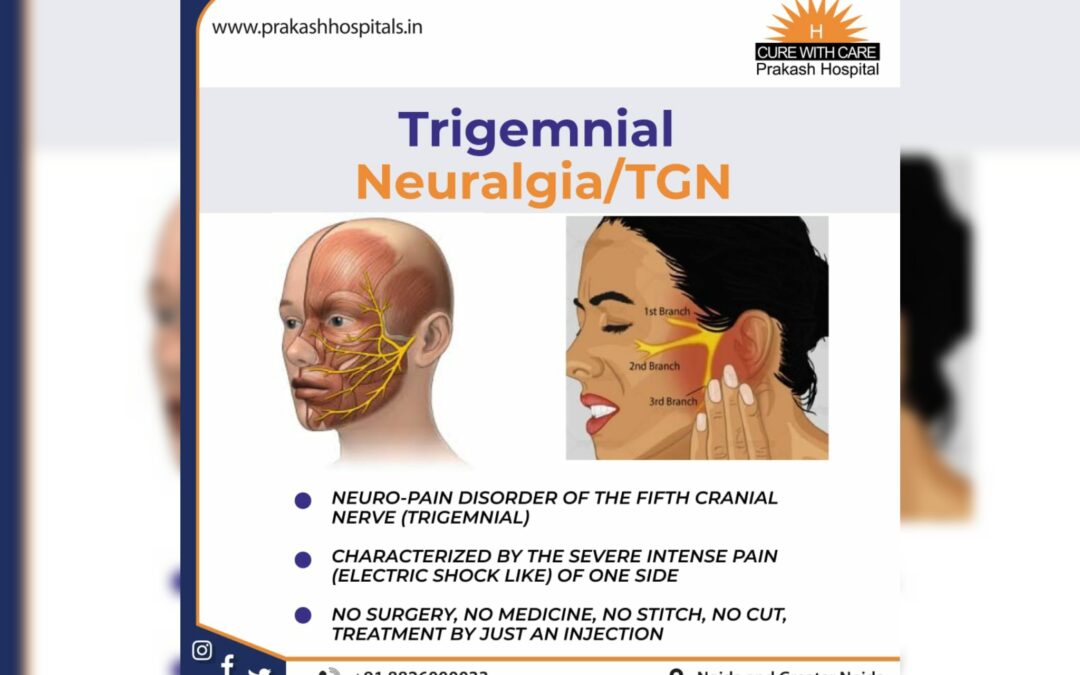Have you ever felt a sharp shooting pain in the upper jaw? How often does it occur? Normally, pain associated with upper jaw or gums indicate oral infection or other dental conditions. However, if these episodes occur frequently accompanied by excruciating pain then it’s a matter of concern. Often neglected, “Trigeminal neuralgia” is a condition that causes sudden shock-like facial pain that lasts for seconds to as long as two minute per episode.
It’s possible for the pain to reoccur in weeks or disappear for months, also in mild cases these periods of attacks tend to get shorter with time. In serious conditions, patients start to feel throbbing or burning sensation more frequently along with sharp attacks.
Even if the condition sounds terrifying, there is no need to panic! Trigeminal Neuralgia is treatable and can be effectively managed with medications, injections and other methods.
Before, your mind wanders in doubt, read on the the following and get some important insights about the condition!
What are the Triggers?
Attacks of trigeminal neuralgia can be focused in one spot or can be spread throughout the face. Typically, it may begin with tingling or numbness sensation and flare up on one side of the face, however in rare conditions a patient may feel crushing ache in both sides covering cheeks, jaws, hums, lips, teeth and even forehead.
In most of the cases simple day-today activities set off trigeminal neuralgia pain, which include;
· Touching of face
· Eating or Drinking
· Shaving/ Waxing
· Washing of face
· Talking
· Applying makeup
· Brushing your teeth
· Smiling
· Encountering mild/cold breeze
· Light pressure on the face
Any of these triggers may cause sudden, or intense ache, leading to sporadic attacks to constant which can last for a few seconds to hours. The intensity of the pain differs from person-to-person.
What are the causes of Trigeminal neuralgia?
Trigeminal nerve is one of the 12 pairs of nerves that are connected to the brain that transmits sensations of pain and touch from the face, teeth, and mouth to the brain. Usually, caused by the compression of the trigeminal nerve that wears away or damages the protective coating around the nerve (the myelin sheath). The condition arises when a nearby blood vessel presses any part of the nerve inside the skull. The exposed nerve becomes highly sensitive causing stabbing pain around the affected regions.
Most often, the cause of trigeminal neuralgia is idiopathic. Other times, it can be a result of Multiple sclerosis, tumor, physical damage to the nerve during the dental procedure, infections, or family history (rare condition).
Diagnosis
Trigeminal neuralgia is hard to detect in the initial stage, because there are no specific diagnostic tests or symptoms that differ from other facial disorders. It is important to seek medical advice if you repeatedly experience any unusual sharp pain around lips, eyes, nose, jaw, forehead or scalp. You can discuss the discomfort and symptoms with the primary care physician who can better suggest you consult a specialist. Some doctors prefer to recommend going for an MRI that can rule out the exact reason for nerve irritation.
Treatment for Trigeminal Neuralgia
Nowadays, several options are available to treat Trigeminal neuralgia. The best possible treatment doesn’t even require to undergo surgical methods. However, typical pain management medications don’t work for people suffering with trigeminal neuralgia but other forms of drugs are prescribed to slow the TN attacks or control the symptoms. Anti-seizure medications block nerve firing (irritation), or anticonvulsants are used as muscle relaxants, whereas tricyclic antidepressants are also suggested depending on the condition.
One of the successful treatment methods, Botox injections has shown great results in reducing pain from trigeminal neuralgia especially for patients that haven’t found any positive response from medications.
In rare occasions, an outpatient surgery is recommended to treat TN which includes methods such as Balloon compression, Gamma knife, Microvascular decompression and so on.



Recent Comments